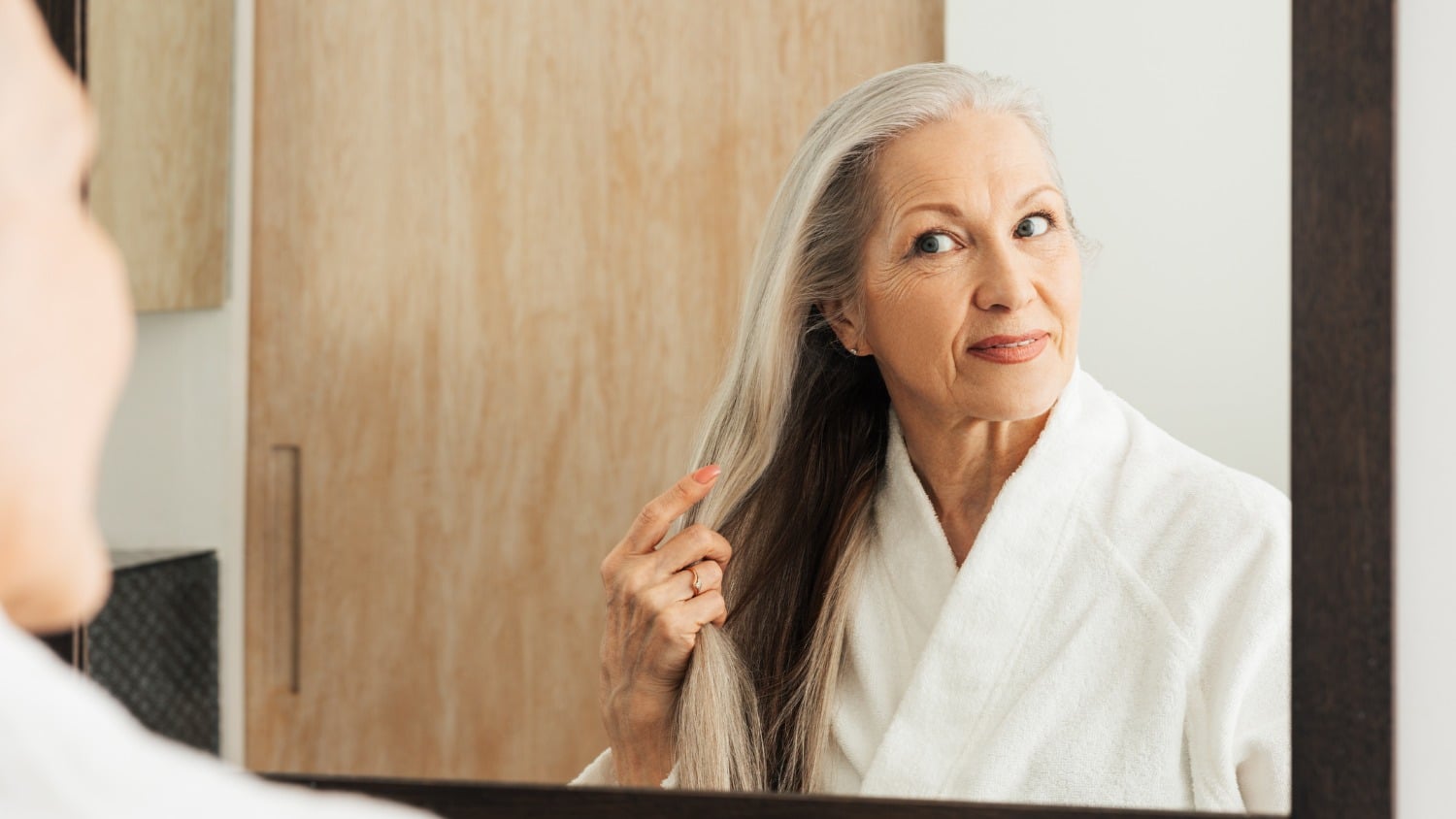What is a Geriatrician and When Do You Need One?
If you were looking for a mechanic to work on your car, you would almost certainly want to work with someone who had experience with your car’s make and model. So, why should finding a doctor after 60 be any different? In this interview, my guest, Dr. Leslie Kernisan, and I discuss why you might want to work with a geriatrician. What exactly is a geriatrician? Let’s find out!
Margaret Manning:
My guest today is Dr. Leslie Kernisan. Leslie is a medical doctor who specializes in geriatrics. She provides practical advice for people who are dealing with the medical issues that come up when you get a little older. Welcome, Leslie.
Leslie Kernisan:
Thank you for inviting me.
Margaret:
We all want better health while aging. In fact, that in one of the key pivots of our Sixty and Me community. We believe that healthy aging is important. I’m really glad you’re here, because you can explain firsthand what a geriatrician is and does.
Leslie:
Happy to oblige. A geriatrician is a medical doctor who specializes in geriatrics—a specialty in medicine and health care, especially focused on older adults.
If you think about it, geriatrics bears a similarity with pediatrics. We developed pediatrics because professionals realized that children did better when health care was modified to better fit with their growing bodies.
Geriatrics was established because over time it became clear that as people aged they needed modifications to their health care. Things that worked for younger people did not necessarily work—or work as well—as people got older. Sometimes things that are beneficial at a younger age are quite harmful for older adults.
I think of geriatrics as the art and science of modifying health care so that it works better for older people. It’s a knowledge-based field where we actually learned that different diseases may have different symptoms depending on age.
For instance, a younger person with a urinary tract infection will have belly pain and burning. An older person, however, might have nothing more than weakness and confusion.
Illnesses can have different symptoms, and so they might need to be treated differently. Moreover, people respond differently to medications as they get older. They become a lot more sensitive to the side effects, especially the ones affecting their cognition and balance. That’s why the risk/benefit ratio of the treatments changes as people get older.
In geriatrics we have learned about how better to manage the health of people, and also, to use an approach that is different from when treating younger adults. You have to consider speaking to people differently when they are in certain stages.
We are ready to talk to someone who might have memory or hearing difficulties. Also, we are very attuned to the fact that family members are often deeply involved in an older person’s life. In our field of medicine, we really think about the whole person.
Often, as people get older, they have multiple chronic illnesses. They might have some chronic difficulties in life as well—with their mobility or their thinking.
That’s why the standard approach of narrowing down on a single disease or an organ, though it may not be optimal for people who are in their 30s and 40s, becomes a real problem when people are older. Older people need an entirely holistic approach to their health care.
Margaret:
We are very complex as we get older. You mentioned that geriatrics was for older adults; how do you define an older adult?
Leslie:
There is a tendency to conflate geriatricians with geriatrics. Geriatrics is the knowledge base and the approach that we use. But you don’t necessarily have to be a board certified geriatrician to provide care that is grounded in geriatrics.
We have family medicine doctors who provide pediatric care to children. They have the training, and we would be very surprised if they were to treat a child just as an adult.
However, even though most doctors do care for adults who are older, they don’t necessarily implement geriatric care. In fact, what they would tell me is, “I practice geriatrics because I see lots of people in their eighties.” The question is, do they provide suitably modified care? And at what age does one need that care?
I find that there are five things that happen as people get older that make geriatric care necessary. The first is that people become more vulnerable in their body or in their mind. We actually start to see this even when we are younger.
It takes us longer to recover from an injury even in our 30s and 40s. We have a little less resilience. The reason why that happens is because people become more sensitive to side effects. Starting around the 60s, we begin to see more falls as well.
For some people this happens a bit later. This depends on how you lived your life, your lifestyle factors, whether you suffered from chronic illnesses or a lot of stress, etc. Whether it happens sooner or later though, becoming more vulnerable is probably the first thing that happens.
Next on the list are those multiple chronic illnesses. They require a specialist’s assistance who can integrate them all together for a more holistic approach.
Number three encompasses the so called geriatric syndromes. They include falls, depression, memory problems, isolation, incontinence. These are really common problems and, usually, the older you are the more common.
In older people, geriatric syndromes tend to have multiple underlining causes that are converging together. In comparison, if a younger person is susceptible to falling, you can usually drill down and find one specific neurological problem or cardiovascular problem.
With older adults, the causes are multiple. The good news is that we’ve developed approaches that tend to be more successful for treating those issues.
The fourth thing that happens as people get older is that they often develop chronic impairments with mobility, with their body or their thinking. So then you have to adapt their medical plan. You’ve got to think about what is feasible.
Also, you want to focus more on how to help the person adapt or compensate for the impairment so they can still thrive. That might be more important than making sure that the blood pressure or something else is within certain limits.
The last thing on this list is the involvement of family members, which I mentioned before. When people ask me at what age they need geriatrics, I say, “It really depends at what age you start to have a lot of these happen to you.”
Some people will start experiencing these syndromes as early as their 50s or 60s, while there will be others who are in their 90s and take no medications, have no chronic illnesses, live entirely independently.
The latter group only have one weakness that they don’t always realize or even admit. That is that they are fairly vulnerable and that they could easily be knocked down by an illness that they would’ve easily resisted or bounced back from when they were in their 50s and 60s.
Margaret:
I never thought about it this way. The ageing process is complicated enough even with the little things like wrinkles and belly fat. But those seem silly when the complications you described come into play.
So, geriatrics is really an attitude to ageing. You are providing a framework for people to look at all the different things that can happen. It is important, however, when we go to a doctor, he or she be someone who can understand the complexity of medication and balance, for example.
Leslie:
The more people have either accumulated health problems or are starting to struggle with daily life or are developing impairments, the more that they are going to benefit from the geriatrics approach. Even people who are relatively well in their 60s should probably be careful about medications that can dampen brain function.
Maintaining our brains at their best is a huge priority. That’s why it’s important to make sure that people are careful about their balance and falls and their strengths. I mostly want people to know that there is a better way to manage all these age-related health issues.
Some of these will even come up for people in their 60s, and unless you have some understanding about geriatrics, you wouldn’t know to ask your doctor to implement it for you. Of course, the ideal would be for everybody to be able to see a professional who has been trained in geriatrics.
The positive thing is that there is an increasing movement in the United States—and probably in other countries—to make sure that all physicians, nurses and health professionals, unless specialized in pediatrics or OB, are equipped with basic geriatrics.
Margaret:
They are going to have to do that because of the growing population of older people. I think it would be good if we can learn to be a little bit more self-sufficient as well. It would be helpful if we could look in at your own health problems and bring them to the attention of the doctor.
We could also implement our own strategies like Yoga or Pilates. Exercise helps with balance so you can put your tights on without falling over.
Leslie:
There is so much people can do. Nowadays, a lot of people are interested in a healthier lifestyle and a healthy ageing, and that’s really important. At the same time, people at some point come in contact with the health care system. Quite often they won’t get optimal care, unless they are actually pretty proactive and paying attention.
If you have a chronic illness, how that chronic illness is managed can make a huge difference. If you are not careful, you can easily be harmed by clinicians giving you too much medications, when maybe you could have been treated with fewer.
People don’t realize that they’re physicians are often very busy. So, I encourage people to be informed and take an active role in their health care. It’s important to always double check things and ask questions.
Margaret:
In this respect women can be very timid.
Leslie:
But it’s important to be proactive because so many of the age related challenges that end up causing people a lot of anxiety and frustration are actually health related. Many things that people worry about for their ageing parents, track back to a health problem that they struggle with themselves.
I don’t think anybody likes to worry too much about their health, and making an effort to learn a little bit more can take care of this. When you go in to the doctor, you need to be ready to ask questions instead of sitting back and assuming that you’ll get the right care that is suitable for your stage of life.
Margaret:
You’ve got a wealth of resources there like guides that people can read and empower themselves to get healthy and stay healthy. Everybody wants to make the most of their lives on this beautiful planet and be healthy while we are doing it. Thank you for all that you do.
Leslie:
Thank you.
Margaret:
It’s been great chatting with you. Thank you so much.
Have you visited a doctor who practices geriatrics? How involved are you when you visit the doctor’s office? Do you think you can do more to better your health and lifestyle? Please join the conversation!
Tags Getting Older






